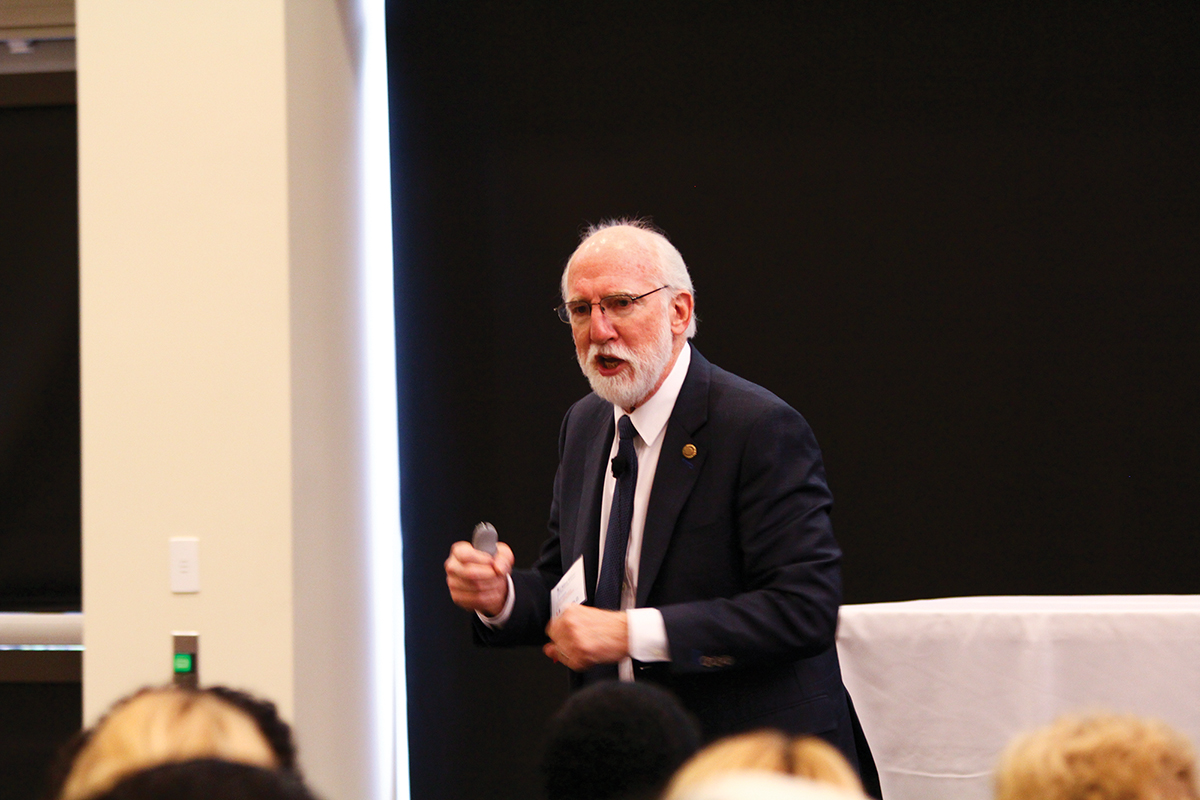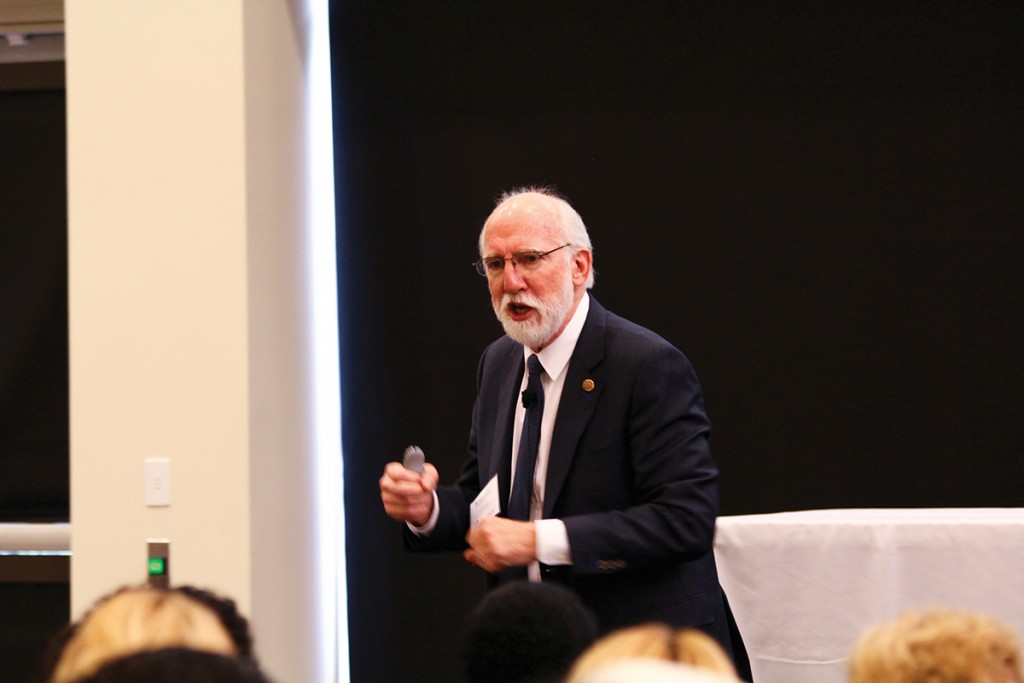

Students inclined to proactive aggression, as opposed to students inclined to reactive aggression, often see little reason to change their ways due to this goal-oriented aggressive behavior. According to Jim Larson, professor emeritus of psychology and former director of the School Psychology Training Program at the University of Wisconsin, these students are belligerent because of their desire for something more.
Dr. Larson presented his studies on aggressive youth to an audience of educational professionals, teachers and other professions as the keynote speaker for the conference on School Safety and Violence Prevention, an event held by the University of Miami School of Education and Human Development and The Melissa Institute Friday morning.
When it comes to college students, Larson said they are less aggressive than their counterparts who are not in college.
“There’s something to be said about somebody who has the self-control to go to college also has the self-control to avoid fighting, if they stay sober,” Larson said.
Along with this presentation, other speakers presented how these studies either influenced or directly affected the transitioning procedure for dealing with disciplinary issues in Miami-Dade public schools, which was the main focus for the conference.
Executive Director of the Division of Educational Opportunity and Access Deborah Montilla spoke about the current perceptions of handling disciplinary issues with students. Of the many procedures, Montilla’s focus was on the use of Outdoor Suspension and how alternatives to suspension provide opportunities to identify and eliminate root causes of behavior.
“[Our goal] is to lead these off-track students with high-promise toward safety, health and well-being,” said Montilla.
Another topic of discussion came from Frank Zenere, department head of the MDCPS Crisis Management Program. Zenere spoke of youth who have been impacted by childhood trauma. He compared the trauma to a snow globe; when the snow globe is shaken, there’s chaos within, similar to childhood trauma being the leading cause for psychological issues.
“Things will forever be different [after the initial shake of the snow globe]” said Zenere.
Although the conference was geared toward students of Miami-Dade Public Schools, Dr. Larson assured that these issues are also present in adults both in college and in the workplace.
“Proactive aggression is any aggression, whether done by a child, teenager, or adult, that is planned, has a goal to it, tends to be not anger-reactive, but simply aggression that is looking to obtain something. That’s instrumental aggression,” said Larson.





